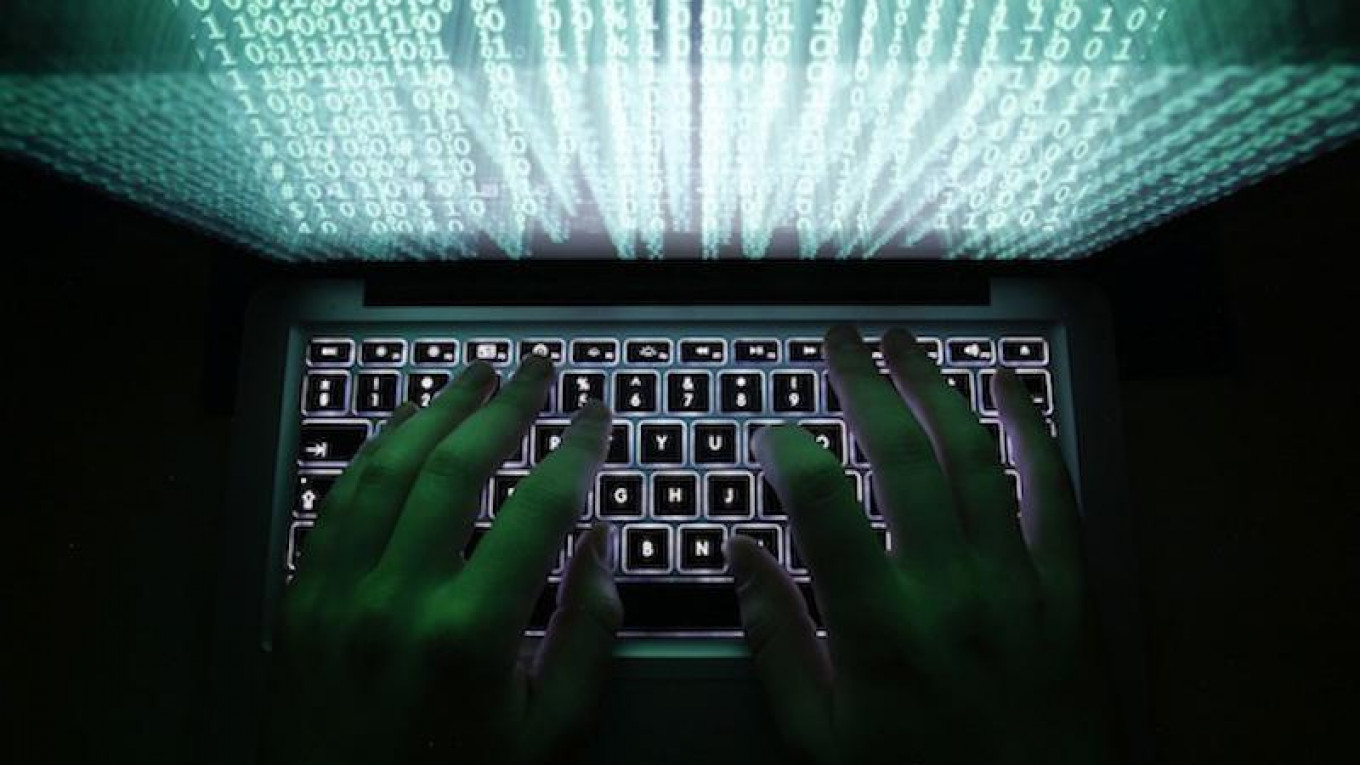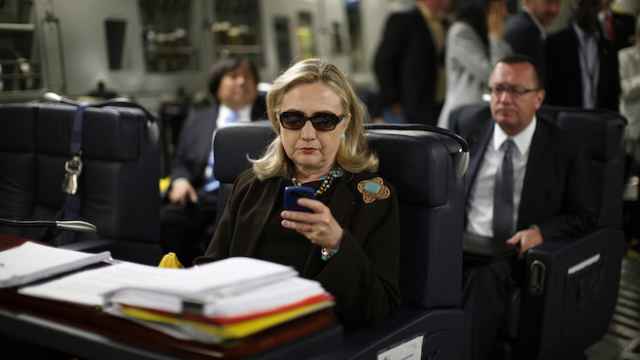The Russian government has been accused of orchestrating a hack that leaked some 20,000 U.S. Democratic National Committee (DNC) emails, after which the DNC Chairwoman resigned.
The Hillary Clinton campaign chairman, Robby Mook, told reporters Sunday that “some experts” are saying that “this was done by the Russians for the purpose of helping Donald Trump.”
Cybersecurity experts have said that Russian intelligence passed the emails to WikiLeaks for release, but links to Trump remain uncertain at best. The Trump campaign has denied such connections, calling the accusations “pure obfuscation.”
Initial Reports
The Washington Post newspaper revealed last month that “Russian government hackers” got into the DNC computer network, gaining access to emails and “opposition research” on Trump. CrowdStrike, the firm who handled the breach, as well as two more independent research firms concluded that the Kremlin sponsored the two groups responsible, one of which had access for a year.
The Kremlin denied the accusations, “absolutely ruling out the possibility” of government involvement. President Vladimir Putin’s recently appointed Internet advisor, German Klimenko, suggested that someone “simply forgot the password.”
Russia has a history of hacking accusations, including a three-week long string of cyberattacks in Estonia in 2007 that disabled government, newspaper and bank websites. Germany’s domestic intelligence service claimed that Russia was behind a 2015 hack that disabled its parliament’s computer systems for several days. The Kremlin was implicated in hacks into the State Department’s unclassified email system and the White House computer network last year.
Leaks, Democratic Party Fallout
WikiLeaks posted a database of some 20,000 internal DNC emails on Friday, causing a stir inside the Democratic Party as allegations of bias and conspiracy emerged. The leak was pointedly timed in the several days between the Republican and Democratic conventions.
Several emails revealed that the committee was skewed in Clinton’s favor, as top officials mocked and criticized her main opponent Senator Bernie Sanders. The revelations corroborated Sanders’ repeated claims during the primaries that the DNC was actively working to sabotage his campaign.
The committee’s chairwoman, Debbie Wasserman Schultz, was specifically implicated. Schultz has since resigned, a move the Sanders campaign welcomed as “the right decision.”
What’s in it for Russia?
The Clinton campaign has claimed that the Russian-sponsored leak was meant to play into her opponent Donald Trump’s hands, but the links are tenuous.
International affairs analyst Vladimir Frolov told The Moscow Times that the primary objective of a Kremlin-sponsored leak, which he calls “possible and even plausible,” “wouldn’t be to influence the campaign but to retaliate against and discredit Clinton for what they see as a smear campaign against Putin.”
Even if Russia didn’t find anything to directly harm Clinton’s chances, Frolov says, “they found a good information war weapon, and they released it at the opportune moment,” causing an immediate stir.
“The DNC is a secondary target,” Frolov said. “This shows that the DNC was skewed for Clinton but that’s not an intelligence coup, it’s not interesting to Russian leaders.” Any attempt to influence the voting behavior of young Sanders fans would be misguided and “incorrect,” Frolov says, and “Trump as a candidate for Russia is just what Clinton needs.”
Masha Lipman, a Russian political expert, echoed such doubts, telling The Moscow Times that she couldn't "see how this compromises Clinton.”
The Trump-Russia Connection
There have been many alarm bells sounded in the media about connections between the Trump campaign and Russia, including an exchange of praise between Putin and the Republican candidate. Recently, Trump said he would only help the Baltic states in the event of a Russian invasion if they “fulfilled their obligations to [the U.S.].”
Several of Trump’s advisors are very sympathetic to the Kremlin, publications claim, and his campaign chairman Paul Manafort served as an advisor to Russian-backed former Ukrainian President Viktor Yanukovych. Frolov thinks the connections are overblown.
“Manafort advised Yanukovych on media, not policy, and Moscow exerted pressure on Yanukovych to get rid of him because he was seen as an undue U.S. influence,” Frolov said.
The FBI might well investigate these possible connections, but he doubts they would “find evidence of undue influence.” “They’re freaks who spread freaky opinions, lots of U.S. expats like Carter Page love Putin but they don’t do it for money, they enjoy it,” the analyst said.
In fact, Frolov noted, while Russia sees Trump as a window of opportunity for the restoration of relations, they have some “apprehension” because of his unpredictability and inexperience.
Lipman also questioned claims of unsavory ties, saying that people are alarmed at his newfound popularity and “are looking for ways to discredit him — it looks like desperation, frustration and weakness.” Allegations that the Kremlin backed the hackers seem credible, but Lipman says such accusations look like “a mirror reflection of the common Russian tactic of blaming outside sources” for problems like the doping scandal and the Panama Papers.
If the Kremlin orchestrated the hack in question, they don’t seem to have done much but cause a media uproar and cost Schultz her position. Schultz seems to have recovered quickly: she accepted a job in Clinton’s campaign hours after her resignation.
A Message from The Moscow Times:
Dear readers,
We are facing unprecedented challenges. Russia's Prosecutor General's Office has designated The Moscow Times as an "undesirable" organization, criminalizing our work and putting our staff at risk of prosecution. This follows our earlier unjust labeling as a "foreign agent."
These actions are direct attempts to silence independent journalism in Russia. The authorities claim our work "discredits the decisions of the Russian leadership." We see things differently: we strive to provide accurate, unbiased reporting on Russia.
We, the journalists of The Moscow Times, refuse to be silenced. But to continue our work, we need your help.
Your support, no matter how small, makes a world of difference. If you can, please support us monthly starting from just $2. It's quick to set up, and every contribution makes a significant impact.
By supporting The Moscow Times, you're defending open, independent journalism in the face of repression. Thank you for standing with us.
Remind me later.






